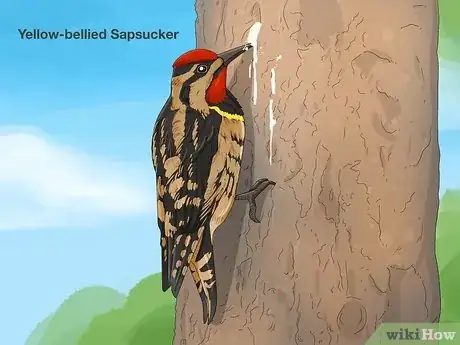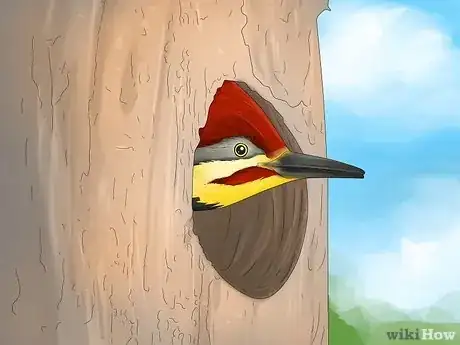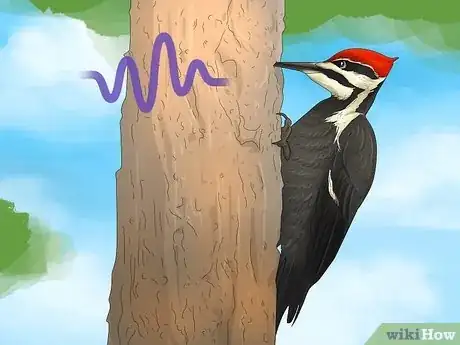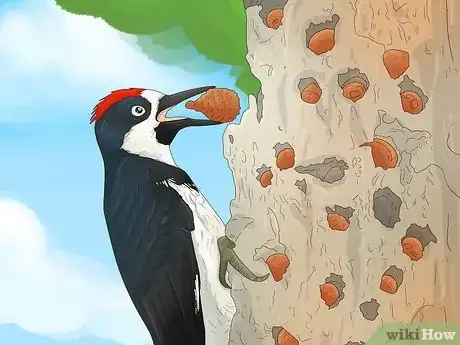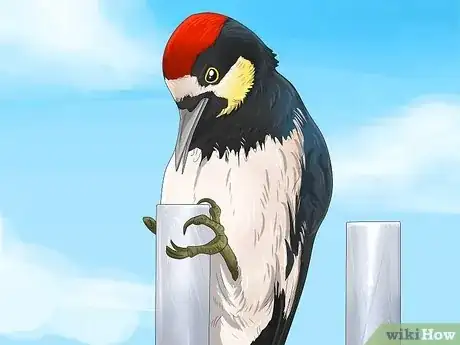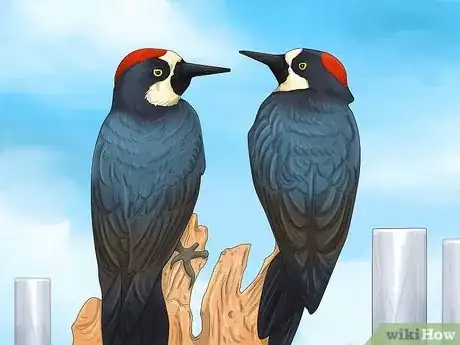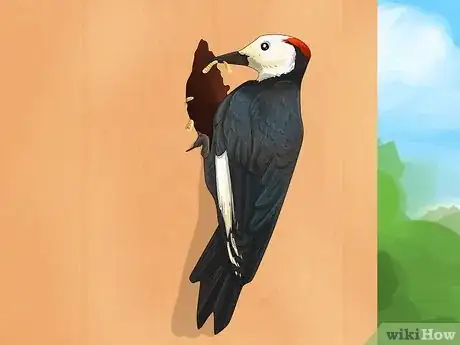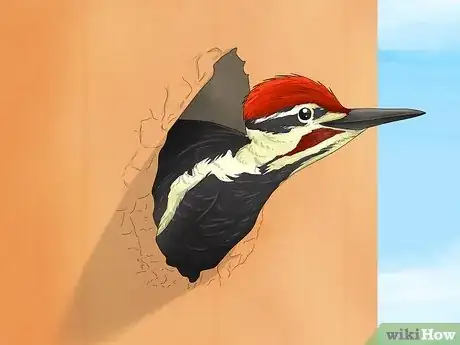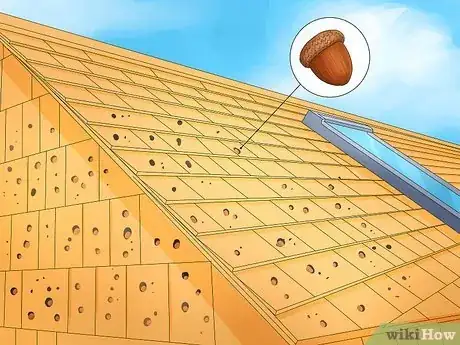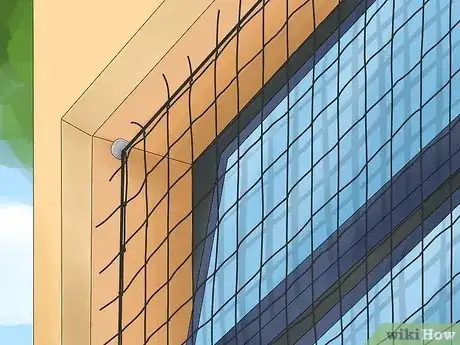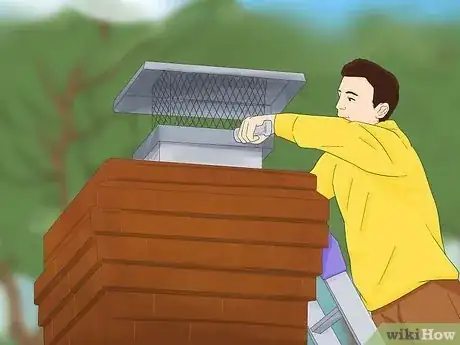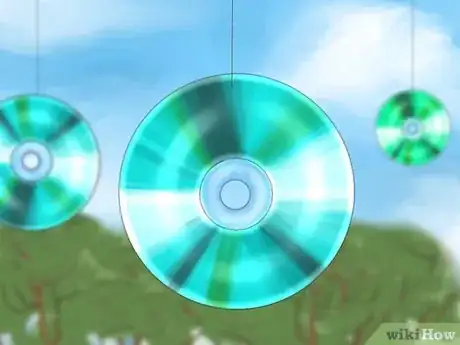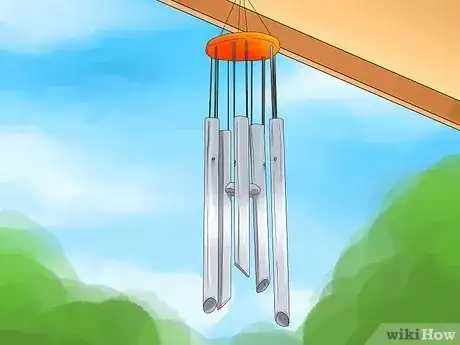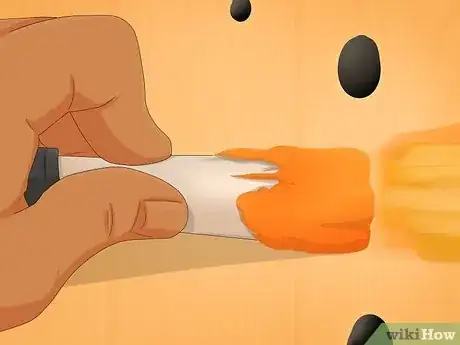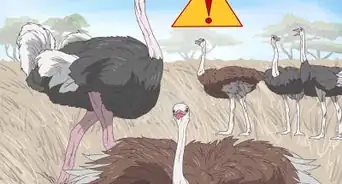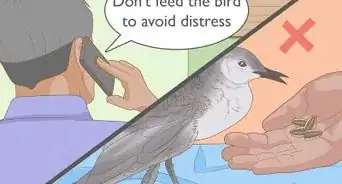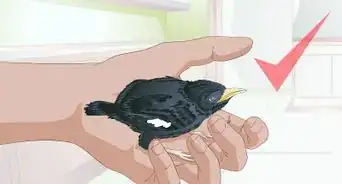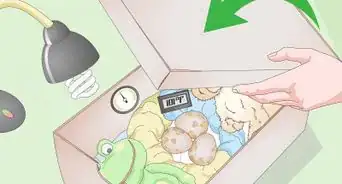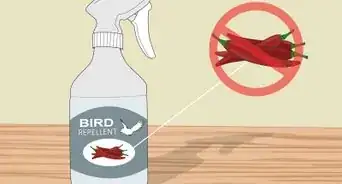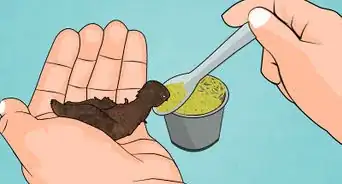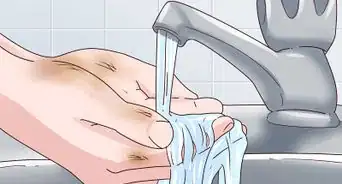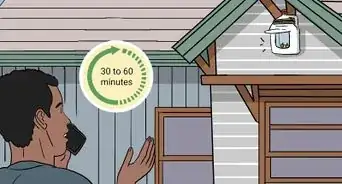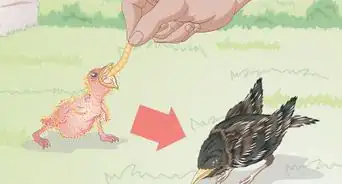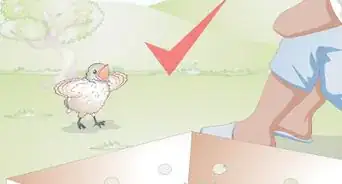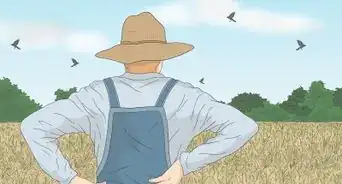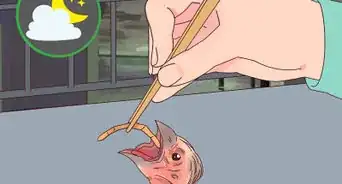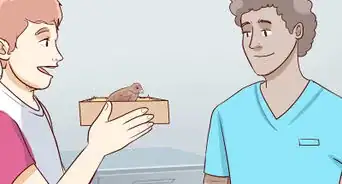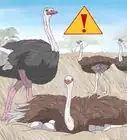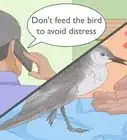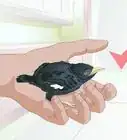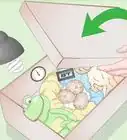This article was co-authored by Elmer Bensinger. Elmer Bensinger is a Pest Control Specialist with Eden Advanced Pest Technologies in Spokane, Washington. With over 20 years of experience, Elmer specializes in integrated pest management and products such as insecticides and rodenticides. He studied business at South Puget Sound Community College.
There are 14 references cited in this article, which can be found at the bottom of the page.
There’s no mistaking the distinctive hammering sound of a woodpecker; it’s impressive and irritating in equal measure! While it might feel like they’re doing all of that tapping just to annoy you, it’s actually essential for the bird’s survival. If you’re curious why a woodpecker is motivated to drill into wood, drum on metal, or hammer your house, we have the answers. And if you want to know how to stop the racket, we have pointers for that too!
Steps
Warnings
- Skip the sticky repellents. They can cause fatal injuries to birds and other wildlife.[26]⧼thumbs_response⧽
- Woodpecker species are protected in many countries. Harming the birds, their eggs, or their nests could result in legal consequences or fines.[27]⧼thumbs_response⧽
- In the United States, a permit must be issued by the Law Enforcement Division of the U.S. Fish and Wildlife Service before a woodpecker can be killed. There must be a good case to justify the permit and the process is time-consuming.[28]⧼thumbs_response⧽
References
- ↑ https://wonderopolis.org/wonder/why-do-woodpeckers-peck-wood
- ↑ https://www.allaboutbirds.org/news/why-do-woodpeckers-like-to-hammer-on-houses-and-what-can-i-do-about-it/
- ↑ https://www.allaboutbirds.org/guide/Yellow-bellied_Sapsucker/overview
- ↑ https://www.sciencejournalforkids.org/wp-content/uploads/2019/09/Sapsucker_article.pdf
- ↑ https://wonderopolis.org/wonder/why-do-woodpeckers-peck-wood
- ↑ https://www.allaboutbirds.org/news/why-do-woodpeckers-like-to-hammer-on-houses-and-what-can-i-do-about-it/
- ↑ https://abcbirds.org/blog20/woodpecker-sounds
- ↑ https://www.allaboutbirds.org/guide/acorn_woodpecker/id
- ↑ https://www.cbc.ca/news/canada/calgary/woodpeckers-calgary-homes-drumming-1.5989670
- ↑ https://www.adfg.alaska.gov/index.cfm?adfg=wildlifenews.view_article&articles_id=53
- ↑ https://www.newportthisweek.com/articles/why-do-woodpeckers-peck/
- ↑ https://www.allaboutbirds.org/news/why-do-woodpeckers-like-to-hammer-on-houses-and-what-can-i-do-about-it/
- ↑ https://www.allaboutbirds.org/news/why-do-woodpeckers-like-to-hammer-on-houses-and-what-can-i-do-about-it/
- ↑ https://www.fws.gov/story/bird-nests
- ↑ https://www.essexwt.org.uk/blog/lily-chambers/species-spotlight-green-woodpecker
- ↑ https://www.allaboutbirds.org/guide/acorn_woodpecker/id
- ↑ http://ipm.ucanr.edu/PMG/PESTNOTES/pn74124.html
- ↑ http://ipm.ucanr.edu/PMG/PESTNOTES/pn74124.html
- ↑ https://wildlifedamage.cals.wisc.edu/wp-content/uploads/sites/289/2020/10/Woodpecker.pdf
- ↑ http://ipm.ucanr.edu/PMG/PESTNOTES/pn74124.html
- ↑ http://ipm.ucanr.edu/PMG/PESTNOTES/pn74124.html
- ↑ https://wildlifeinformer.com/why-is-a-woodpecker-pecking-on-my-house/
- ↑ http://ipm.ucanr.edu/PMG/PESTNOTES/pn74124.html
- ↑ http://ipm.ucanr.edu/PMG/PESTNOTES/pn74124.html
- ↑ http://ipm.ucanr.edu/PMG/PESTNOTES/pn74124.html
- ↑ https://www.allaboutbirds.org/news/why-do-woodpeckers-like-to-hammer-on-houses-and-what-can-i-do-about-it/
- ↑ https://www.essexwt.org.uk/blog/lily-chambers/species-spotlight-green-woodpecker
- ↑ http://ipm.ucanr.edu/PMG/PESTNOTES/pn74124.html
